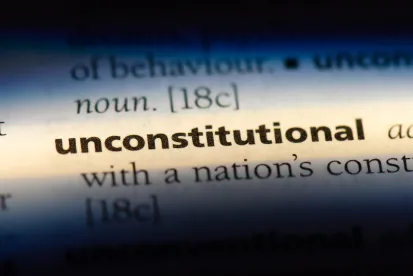Given recent activity at the National Labor Relations Board (NLRB), employers in the crosshairs of the agency have taken up a new strategy when faced with complaints before the board: challenging its constitutionality.
The 88-year-old federal agency was created in 1935 to enforce the National Labor Relations Act, which protects employees' right to collectively bargain, unionize, and engage in other forms of “protected concerted activity” related to the terms and conditions of their employment.
A product of the New Deal, the NLRB has yet to face such a challenge in the modern era, but major companies like SpaceX, Starbucks, and Trader Joe's have marshaled a constitutional challenge to the legitimacy of its composition and enforcement activities, hoping to eventually find a sympathetic ear before the U.S. Supreme Court, currently controlled by a conservative majority.
These arguments range from challenges to the board's impartiality to issues concerning the separation of powers doctrine, given the inability to remove board members except “for cause,” to violations of due process and deprivation of the right to trial by jury under the Fifth and Seventh Amendments, respectively. And given the Biden NLRB's aggressive policy and enforcement prerogatives, these arguments have begun to become commonplace defenses against its actions.
With the Supreme Court already signaling its interest in reviewing the power afforded to administrative agencies and the scrutiny they should be afforded under the current Chevron Deference standard, these arguments may be more than just creative – they may be winners. The court is widely expected to address these issues in Loper Bright Enterprises v. Raimondo, a case pending on its docket. The decision ultimately handed down in Loper will become critical to the viability of these arguments against the board and whether its composition or its actions are constitutional.
With such constitutionality challenges in the early stages, it’s still too early to tell, but this is a space that may result in some dramatic changes and is worth watching. Stay tuned.
The NLRB is at the center [of] President Biden’s mission to be the most “pro-union” president ever and a bulwark for a rising tide of union activity. But the organization could suffer a serious blow to its power if the companies challenging its legality succeed.




 />i
/>i

